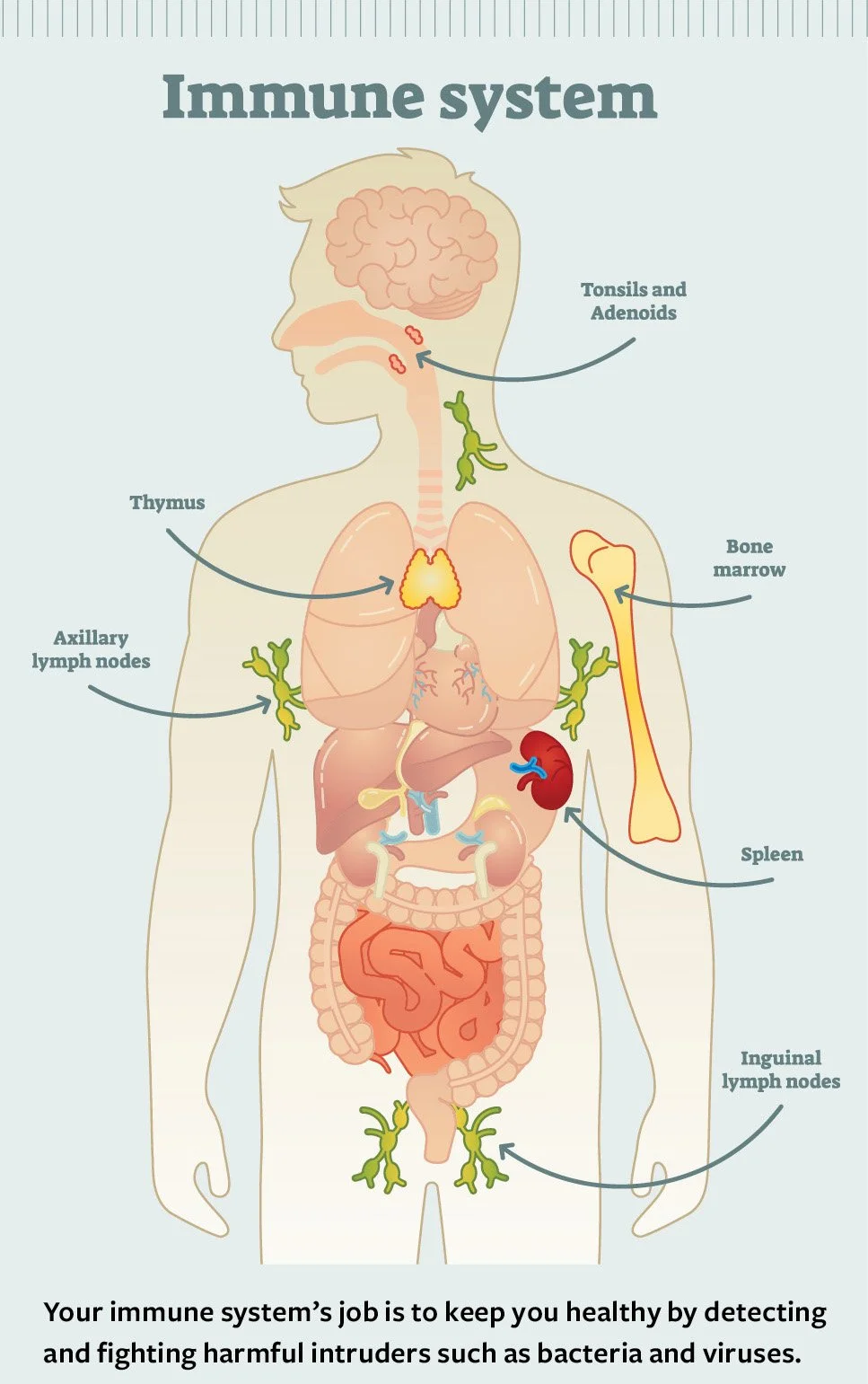Autoimmune Disease & Root Cause Healing
Autoimmune disease occurs when the immune system mistakenly attacks the body’s own tissues. This can lead to chronic inflammation and damage in organs, joints, skin, or glands. While conventional care often focuses on managing symptoms, functional medicine aims to identify and address the root causes that may be driving immune dysfunction—such as gut imbalances, chronic infections, environmental toxins, and nutrient deficiencies.
What Is Autoimmunity?
Your immune system is designed to protect you from harmful pathogens. In autoimmune disease, this defense system becomes dysregulated and begins targeting healthy tissues as if they were foreign invaders. There are over 80 recognized autoimmune conditions, and many more individuals experience autoimmune-related symptoms long before receiving a formal diagnosis.
Autoimmunity is not a single condition—it’s a process. Functional medicine focuses on understanding why the immune system has gone off track and what can be done to restore immune tolerance.
Common Types of Autoimmune Conditions
Autoimmunity can affect nearly every system of the body. Some commonly seen conditions include:
Hashimoto’s Thyroiditis: The most common cause of hypothyroidism, driven by immune attack on the thyroid.
Rheumatoid Arthritis: Autoimmune inflammation of the joints.
Celiac Disease: An immune reaction to gluten that damages the small intestine.
Psoriasis & Psoriatic Arthritis: Affects the skin and joints.
Lupus (SLE): A systemic condition that can impact skin, joints, kidneys, and other organs.
Multiple Sclerosis (MS): Affects the central nervous system, leading to nerve-related symptoms.
Type 1 Diabetes: Autoimmune destruction of insulin-producing cells in the pancreas.
Inflammatory Bowel Diseases (Crohn’s, Ulcerative Colitis): Involve chronic gut inflammation due to immune dysregulation.
Signs and Symptoms of Autoimmune Disease
Autoimmune symptoms often fluctuate, come in flares, and mimic other conditions. Common symptoms may include:
Fatigue or exhaustion that doesn’t improve with rest
Joint pain, stiffness, or swelling
Brain fog or difficulty concentrating
Digestive issues like bloating, pain, or diarrhea
Skin rashes, hives, or discoloration
Muscle aches or weakness
Hair loss or brittle nails
Sensitivity to cold or heat
Unexplained weight changes
Anxiety, depression, or mood instability
Autoimmunity in Women
Autoimmune diseases disproportionately affect women, especially during periods of hormonal transition such as puberty, pregnancy, and perimenopause. Contributing factors may include:
Estrogen-driven immune activation
Gut dysbiosis and leaky gut
Postpartum immune shifts
Birth control or hormonal IUD-related inflammation
Thyroid autoimmunity (Hashimoto’s)
Autoimmunity in Men
Although less common in men, autoimmune diseases in males may be underdiagnosed. Functional medicine helps identify subtle or early signs such as:
Chronic fatigue or joint pain
Elevated inflammation markers
Mood swings or cognitive symptoms
Gastrointestinal distress
Low testosterone related to chronic inflammation
What Causes Autoimmune Disease?
Autoimmune disease is multifactorial—meaning it often develops from a combination of genetic predisposition and environmental or lifestyle triggers. Contributing root causes may include:
Gut permeability (leaky gut)
Chronic infections (e.g., EBV, Lyme, mold, or parasites)
Food sensitivities (especially gluten, dairy, or processed foods)
Environmental toxins (heavy metals, pesticides, endocrine disruptors)
Nutrient deficiencies (vitamin D, omega-3s, zinc, selenium)
Blood sugar instability or insulin resistance
Emotional stress or trauma
Impaired detoxification and lymphatic drainage
How Functional Medicine Approaches Autoimmune Healing
Rather than focusing solely on symptom suppression, functional medicine takes a root-cause approach to calm immune dysregulation and reduce flare-ups. Treatment plans are individualized and may include:
Comprehensive lab testing (autoantibodies, gut health, infections, toxins)
Anti-inflammatory, nutrient-dense dietary protocols
Identifying and removing food triggers
Gut healing and microbiome balancing
Targeted supplements to support immune regulation
Detoxification and drainage support
Stress management and nervous system healing
Lifestyle tools to promote long-term remission and resilience
Note: Functional medicine does not replace your specialist or rheumatologist but can work alongside conventional care to help reduce triggers, improve energy, and support overall immune balance from the ground up.




